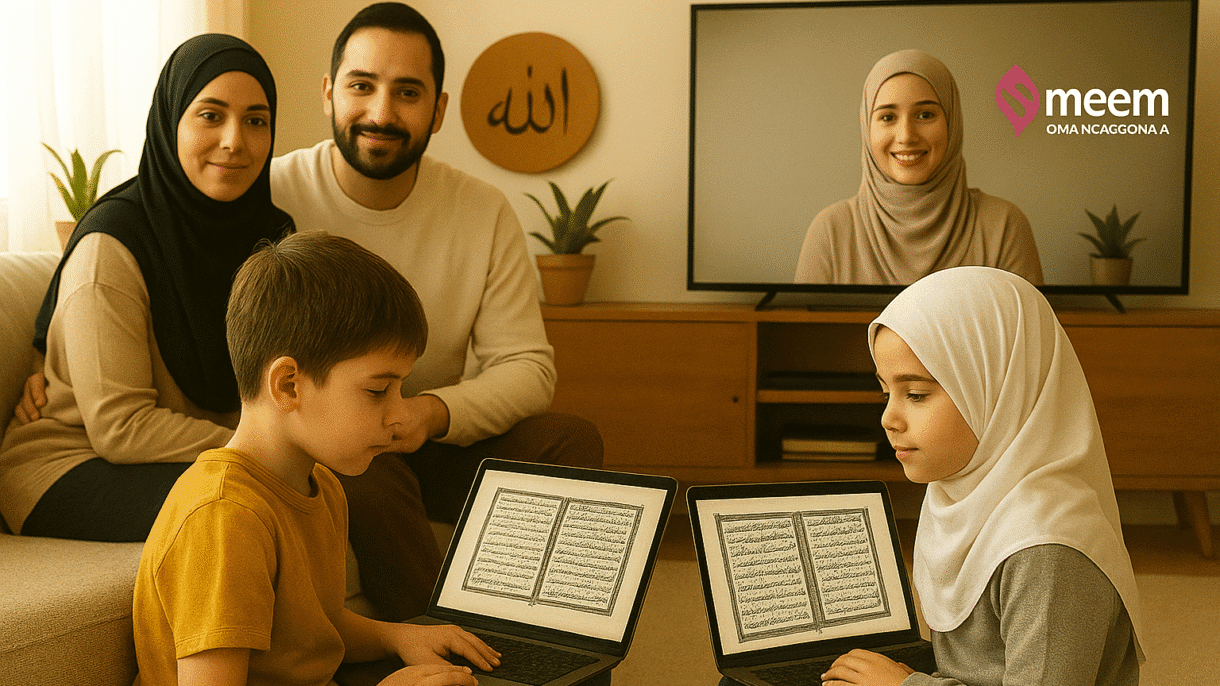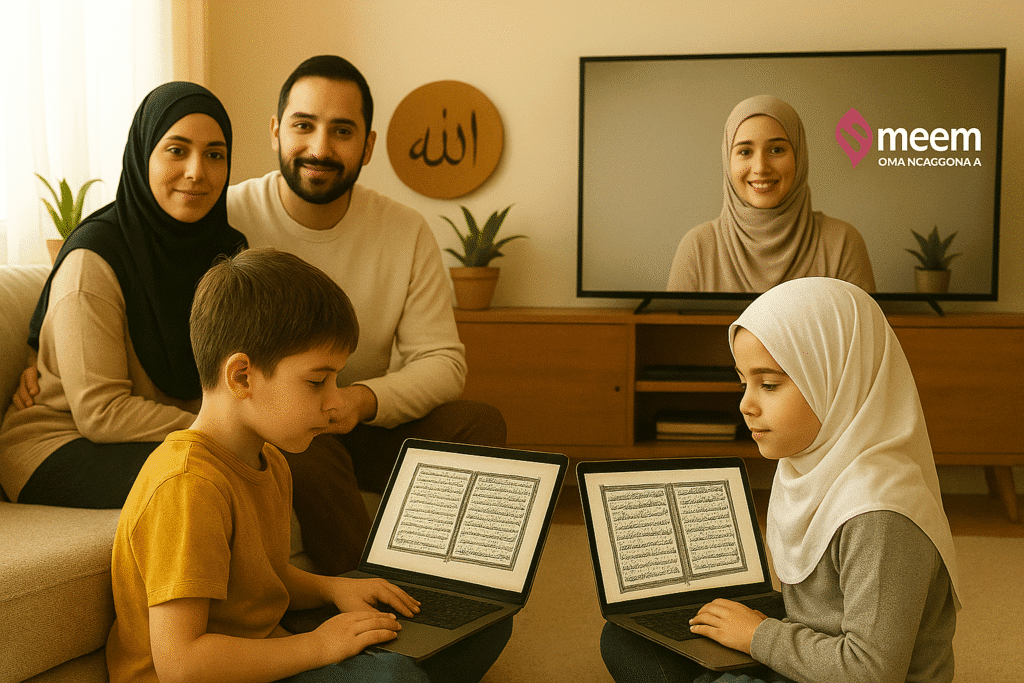
In a world where screens often speak louder than parents, and values are shaped by algorithms more than traditions, raising righteous children has become both a noble duty and a complex challenge. As Muslim parents, we are entrusted with the sacred responsibility of nurturing not only our children’s worldly success, but also their Deen, Character and Eternal Future.

So, how do we raise children who love Allah ﷻ, follow the Sunnah of the Prophet ﷺ, and stay grounded in Islamic values — while navigating the modern digital age?
Let’s explore practical, faith-centered guidance.
1. Start With Yourself: Be What You Want Them to Be
- Be regular in salah, dhikr, and Qur’an — let them see you worship.
- Avoid double standards (e.g. preaching patience, yet showing anger online).
- Admit mistakes and ask for forgiveness — a powerful lesson in humility.
Children are more influenced by what we do than what we say.
“The best of you is the best to his family.” — Prophet Muhammad ﷺ
(Tirmidhi)
2. Teach Digital Boundaries the Islamic Way
Modern devices are tools — not toys. Children need guided exposure, not digital freedom.
- Set clear screen time limits.
- Use filters and parental controls — but combine them with open conversations.
- Talk about modesty online, Islamic manners in chat, and dangers of comparison, fitnah, and harmful content.
“What’s wrong with showing off my new outfit on TikTok?”
The Prophet ﷺ said: “Whoever has an atom’s weight of pride will not enter Paradise.”
(Muslim)
Teach them: “Just because it’s trending doesn’t mean it’s pleasing to Allah.”
3. Make Islam Relevant to Their World
Islam is not confined to the masjid — it’s a way of life.
- Explain Islamic principles through everyday events:
- “Why do we say Alhamdulillah when we get a new toy?”
- To thank Allah, the true Giver. Gratitude increases blessings.
- Celebrate Islamic occasions with creativity: Islamic story time, Ramadan challenges, Jumu’ah journals, etc.
- Use stories of the Prophets, Sahaba, and righteous youth to show real role models.
- “Why do I have to share with my sibling?”
- Sharing is a sign of iman
“None of you truly believes until he loves for his brother what he loves for himself.”
(Bukhari & Muslim)
4. Open the Door to Dialogue, Not Judgment
Your child will face questions, doubts, and online influences.
Don’t panic — connect before you correct.
- Let them ask anything without fear of being “wrong.”
- Discuss pop culture, trends, or peer pressure through an Islamic lens.
Create a safe, loving environment where faith is built through trust, not fear.
5. Develop Their Critical Thinking & Moral Compass
The digital world teaches children what to think, not how to think.
- Train them to evaluate content through questions like:
- “Does this align with Islamic values?”
- “Would I do this if the Prophet ﷺ were watching?”
- “Does this align with Islamic values?”
- Encourage reading, discussion, and reflection.
Teach that true success is not in followers or fame, but in pleasing Allah.
6. Make Du'a Constantly — And Trust Allah’s Mercy
Even the Prophet Nuh عليه السلام couldn’t guide his son — hidayah (guidance) is from Allah.
- Trust in your sincere effort, consistent du’a, and Allah’s perfect timing.
- Guide with wisdom, but leave results to Allah ﷻ.
- Make daily du’as:
“رَبِّ هَبْ لِي مِنَ الصَّالِحِينَ ” — “O my Lord! Grant me (offspring) from the righteous.”
(Qur’an 37:100)
Final Thought
The digital age comes with trials — but also tools. Use technology wisely, but ground your parenting in Taqwa, love, and trust in Allah. Your child doesn’t need to be perfect — they just need a strong compass, a safe home, and a heart attached to the Creator. At Meem Academia, we help you nurture that connection through engaging, Faith-centered learning for children.


0 Comments